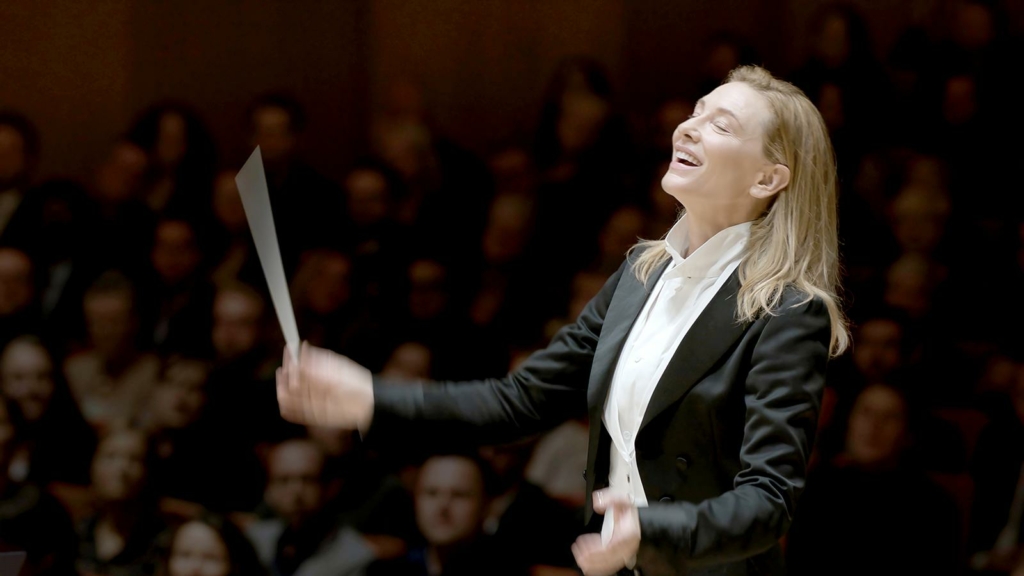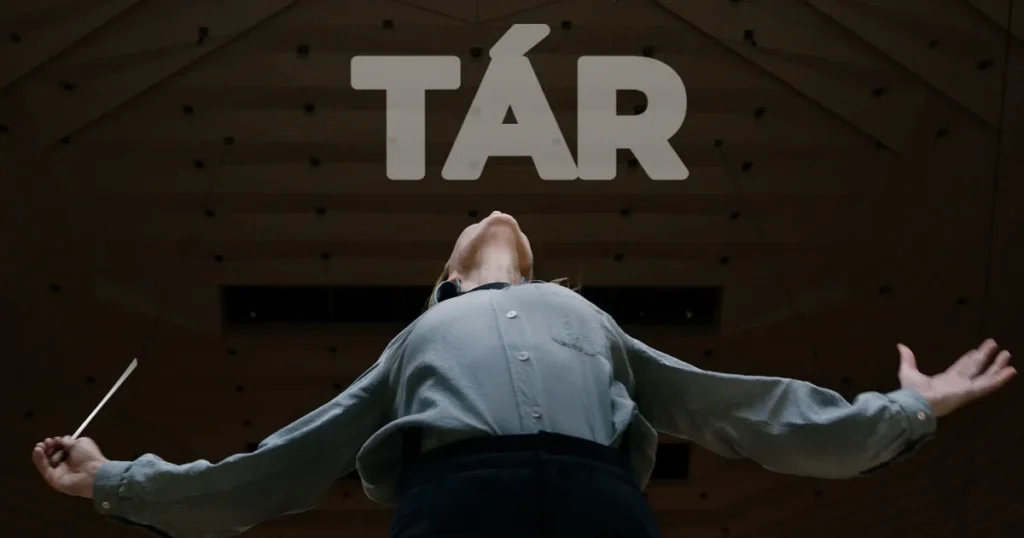Art Monsters
 Meaghan Delahunt explores what the film Tar tells us about power and performance and the gendered concept of ‘genius’.
Meaghan Delahunt explores what the film Tar tells us about power and performance and the gendered concept of ‘genius’.
Cate Blanchett’s role as a world-class conductor in Tar, her latest film, has attracted acclaim and controversy for her portrayal of a female predator. In a world in which men hold most positions of power and in which power and male predation are often linked ( think Weinstein, Horovitz, Spacey, various politicians, comedians, academics, police officers… ) it’s fair to question such a portrayal of a non-hetero woman artist. Does ‘genius’ excuse monstrous behaviour? And why is ‘genius’ almost exclusively applied to men? These are all questions which have been raised by generations of women and pulled into sharp focus in the post- #MeToo era. They are all questions which the film raises and to my mind, that can only be a good thing.
The idea of genius as male is encoded in its Latin masculine ending. We do not speak of ‘genia.’ The traditional notion of genius is not only male, it is white and heterosexual, often involving entitled, ruthless and uncompromising behaviour. To see Cate Blanchett enact a version of such ‘genius’ is both unsettling and strangely, perhaps transgressively, thrilling. It’s unsettling because it shows how absolute power corrupts, how entitlement at a certain level corrupts, how patriarchal institutions ( therefore, most institutions) can have a corrosive effect on the few women and ‘minority’ representatives allowed a seat at the table. It shows the reverberations of this on those around them. It is thrilling for completely different reasons, which we’ll get to.
A woman in the role of the genius /art monster is powerful. It is more powerful and therefore more disturbing than seeing a man in that role. By defamiliarising the ‘male genius’ trope, it is handed back to us in a different form, made strange, if you like. We are then better able to dissect it and analyse it. Imagine a man in that role, some commentators have said. The problem is that women don’t have to imagine a man in that role. We experience the blunt end of this kind of behaviour throughout our lives – in the workplace, in the home, on the street. It’s a reality for the majority of the world’s women, it does not require imagination. If it had been a man in that role, we would invariably have seen grooming and rape and the blocking of a woman’s progress in ways that are familiar to us and often voyeuristic.
Instead, here we sit up, we take notice, we watch Cate Blanchett’s Lydia Tar rise and fall and (perhaps) rise again. Just like a man in that position, only made strange, made different. It requires of us a heightened sort of attention. In a film all about music, this is the dissonance. It is a visceral experience.
The truly thrilling aspect of watching Cate Blanchett in this film – a brilliant woman conductor in an overwhelmingly male world – has been overlooked. It’s incredible to see her walk on stage and command an orchestra and an audience. We realise how few examples of women’s artistic brilliance we see in the culture. She takes up space, she leads, she performs without apology, without self-deprecation, without having to show her vulnerability, without having to perform her femininity or display her wounds in public, and without having to be likeable. It’s still so bracing to see a woman in public life dispensing with all these things. It’s her confidence which is so thrilling. I saw this film with a writer friend and at the end we were silent for a while and then turned to each other at the same time, saying we could do with more of that. What we meant wasn’t the terrible behaviour. What we meant was Cate Blanchett’s confidence as an actor in fully inhabiting that role and the idea of being able to unapologetically express our creativity and artistic ambition.

As a writer and as a teacher of creative writing for many years, what I most often see in women who want to write is a lack of confidence in their own abilities and a feeling that they are ‘selfish’ in carving out time for themselves to write – especially if they have children or other caring responsibilities. They need permission, almost, to take this time for themselves, to step into what has been traditionally a male role – to take centre stage in their own creative lives.
In Jenny Offill’s novel The Dept. of Speculation, the narrator says: “My plan was to never get married. I was going to be an art monster instead. Women almost never become art monsters because art monsters only concern themselves with art, never mundane things. Nabokov didn’t even fold his own umbrella. Vera licked his stamps for him.”
All the great male art monsters have traditionally had wives and muses to do their laundry and keep them fed and to tend their flame after they’ve gone. Women artists, by contrast, have generally had to do their own laundry, keep themselves and their children fed, fold their own umbrellas and still get the art work done. Resisting the cultural template of woman-as-muse and-helpmeet and stepping into the central role of creator in our own lives can be daunting. But women are carving out new templates. To make art we don’t have to be monsters. We can do it differently. We can do away with the category of the ‘difficult genius’ altogether.
Cate Blanchett’s portrayal of a woman artist in full pomp raises disturbing questions about power, about corruption, hierarchy and monstrous gendered behaviour. However, thrumming underneath this film is something slightly off-key to our ears and equally unsettling. Almost a counter-point. If we listen closely, it takes us in a different direction. What does it mean to move beyond the category of art monster/genius, to create a more collaborative, inclusive vision? What does it mean, as a woman, to assume the role of conductor in your own life, and, having done that, to hand the baton onto other women?

Wonderful, thought-provoking essay. Thank you.
If patriarchy has no gender, then surely it has no skin colour, sexual orientation, favoured continent or language either. If anything, I think the term ‘genius’ has been used to allow eccentricity in those it labels, a deviance from social norms, an alternative to what is usually considered sane. Perhaps patriarchy and genius do not neatly meet this article’s characterisation in, say, Renaissance Italy or Modern Japan. Put simply, maybe the label ‘genius’ allows patriarchy to claim one for its own that would otherwise be beyond its embrace.
‘Genius’ is not remotely exclusively heterosexual and if we are talking about classical music composers, Britten, Poulenc, Copeland, Bernstein, Cage, Barber were openly gay and Smyth openly lesbian. There are numerous others known to be gay (e.g. Tchaikovsky, Handel, Lully, Corelli Schubert, Chopin) and once we get into performers, even more so.
The movie was so powerful. I got tired of it being dismissed for demonising a successful woman. And was she demonised? Great article. Thank You.
Agreed Jenny, it was great